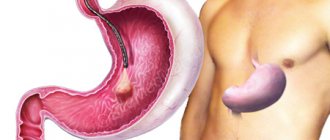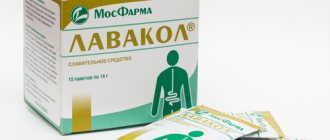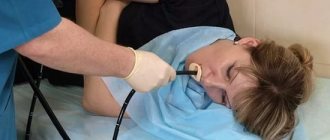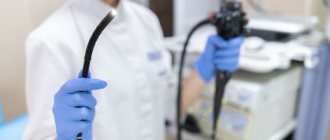Hospitalization (the patient's stay in the hospital) usually consists of three main stages. During the first (preoperative) stage, the necessary studies are performed to prepare for the operation, consultations with specialists, as well as preparatory treatment (special nutrition, treatment of concomitant diseases). The second stage is surgery. And the third (postoperative) stage is recovery after surgery and discharge home.
The length of a patient’s stay in the clinic depends on the type of disease and its severity, the number of necessary examinations, the type of operation, as well as the course of the postoperative period.
Due to the desire of clinics to reduce the costs associated with hospital stays in the preoperative period, there is currently a tendency to perform many examinations on an outpatient basis. This means that before surgery, the patient comes to the clinic only to perform prescribed tests, and then returns home. After all the studies have been completed, the doctor sets the day of the operation, and the patient is hospitalized at the clinic the day before (1-2 days before the scheduled date). In many European countries and the United States, patients scheduled for surgery arrive at the clinic early in the morning on the day of surgery, undergo a short preparation in a special preoperative ward, and are sent to the operating room 2-3 hours later. Keeping the patient at home with loved ones until the day of surgery can reduce the stress associated with the need for surgery.
What is an operation, types of operations
Often surgery is the only chance for life
Operation, surgical intervention, surgical intervention is one of two treatment methods (along with medication) that traditional medicine has. This treatment method involves mechanical action on organs or individual tissues of a living organism - be it a person or an animal. According to the purpose of action, surgical intervention can be:
- therapeutic - that is, the purpose of the operation is to heal an organ, or an entire system of the body;
- diagnostic - during which organ tissue or its contents are taken for analysis. This type of operation includes a biopsy.
Therapeutic drugs, in turn, are divided according to the method of impact on organs:
- bloody - involve tissue dissection, suturing to stop bleeding, and other manipulations,
- bloodless - this is the reduction of dislocations, the application of plaster for fractures.
Any operation takes more than one day. It is preceded by careful preparation, then monitoring the patient in order to prevent undesirable consequences. Therefore, the entire period while the patient is in direct contact with medical staff is divided into periods:
- the preoperative period begins from the moment the patient arrives at the surgical department of the hospital;
- intraoperative period - the immediate time of the operation;
- The postoperative period includes postoperative rehabilitation.
According to the timing of execution, operations are classified as:
- emergency - when surgery is performed immediately as soon as the patient is taken to the hospital and a diagnosis is made;
- urgent operations are performed within 24-48 hours. These watches are used for additional diagnostics, or there is hope that the organ can be healed without surgery;
- planned operations are prescribed after a complete diagnosis of the organs, when it becomes clear that surgery is needed, and the optimal time for medical reasons for the patient and for the medical institution is selected.
Preparation for a planned operation depends on the nature of the disease, and can take 3 days or more. During this period, additional diagnostic procedures and special training are carried out.
Buy everything you need
Buy everything listed below at any pharmacy. It is sold without a prescription.
- 1 bottle (238 g) polyethylene glycol (MiraLAX®).
- 1 bottle (64 oz or 1.9 L) clear liquid. Examples of clear liquids are given in the section “Follow a Zero Diet.”
- An extra clear liquid that you will drink while you are on the Zero Diet.
Your healthcare provider can send prescriptions to your pharmacy for the following antibiotics:
- Metronidazole (Flagyl®, Metrogel®) 500 mg tablets;
- Neomycin (Neo-Fradin®) 500 mg tablets.
If they are needed, be sure to get them from the pharmacy and also take them with you.
to come back to the beginning
Activities included in preparation for elective surgery
Before admission to the hospital, the patient should be examined as much as possible
During preparation for a planned operation, a complete examination of the condition of all organs is carried out in order to identify concomitant diseases that may become a contraindication to surgical intervention. It is also important during this period to determine the patient’s tolerance to antibiotics and anesthetics.
The more complete the examination carried out in the clinic before the patient’s admission to the hospital, the less time the preoperative diagnosis will take. The minimum examination standard requires:
- general blood analysis,
- determination of blood clotting,
- determination of blood group and Rh factor
- general urine analysis,
- analysis for HIV and HBs antigen,
- fluorography,
- electrocardiogram with interpretation,
- consultation with a therapist and other specialists, for women – a gynecologist.
- fibrogastroduodenoscopy data.
For patients diagnosed with cancer, preparation for surgery is carried out simultaneously with examinations. This allows us to shorten the preoperative stage. The operation may be delayed if:
Special measures in preparation for planned surgery
You need to properly prepare for the operation
Respiratory preparation
Up to 10 percent of complications in the postoperative period occur in the respiratory system. The risk of such complications increases especially if the patient has bronchitis or emphysema. Worsened bronchitis may be a contraindication for surgery. Such patients are treated, physiotherapeutic procedures and expectorant medications are prescribed.
Cardiovascular preparation
Patients over 40 years of age and those who have heart complaints are required to undergo an electrocardiogram. If there are no changes on the cardiogram and heart sounds are normal, then no additional preparation is required.
Preparing the mouth and throat
Preparatory procedures include mandatory improvement of the oral cavity with the participation of a dentist. Before surgery, it is necessary to cure all inflamed teeth and gums and improve the health of the oral cavity. Before the operation, removable dentures are removed. Chronic tonsillitis is also a contraindication to intracavitary operations. Therefore, it is necessary to first remove the tonsils, and then only proceed to the main operation.
Psychological preparation
Preoperative preparation should also include psychological work with the patient. The patient’s attitude towards his condition and the upcoming surgical procedure depends on the type of nervous system. Some surgical departments have full-time psychologists. But if there is none, their function is assumed by the attending physician or surgeon. It should prepare a person for surgical intervention, relieve fear, panic, and depression. The doctor should also explain the essence of the upcoming operation.
Junior and middle staff should not talk about this topic either with the patient’s relatives or with the patient himself. Information about the course of the disease and the risks associated with surgical intervention is allowed to be communicated only to the patient’s closest relatives. The doctor also explains to the relatives how they should behave towards the patient, how and how they can help the patient.
Preparation for surgery on the gastrointestinal tract
Preparations for surgery on the gastrointestinal tract take 1 to 2 weeks. In particularly severe forms of gastric pathology, there is a lack of circulating blood and a failure of metabolic processes in the body. For patients suffering from narrowing of the pylorus, the stomach is washed with a 0.25 percent HCl solution every day.
During the period of preparation for surgical intervention on the stomach, enhanced nutrition and vitamins are prescribed. The day before surgery, the patient is given only sweet tea. Bowel surgery requires limiting high-fiber foods. The fact that fasting makes the body unstable to infections is taken into account. Therefore, if the state of the gastrointestinal tract does not allow feeding on one’s own, the patient is administered glucose and protein-containing drugs intravenously. Additionally, the lack of proteins is compensated for by transfusions of blood, plasma, and albumin.
If there are no contraindications, the day before surgery the patient is given a laxative in the form of castor or vaseline oil. The evening before surgery, the intestines are cleansed with an enema. Patients with diabetes undergo special preparatory measures. In order to maintain normal blood sugar levels, they are prescribed a low-carbohydrate diet, and insulin is administered to directly monitor blood sugar levels.
Types of laxatives for colonoscopy
Laxatives are used to cleanse the intestines. They come to the rescue in cases where administering an enema is contraindicated.
Fortrans
This drug is designed specifically for preparing patients before surgery and examination of the digestive system.
Fortrans is an osmotic laxative that is used to treat chronic constipation and preoperative bowel cleansing.
- Ingredients: salts (sodium and potassium), macrogol, soda, additive E 945.
- Pharmacological parameters. The drug is not absorbed into the blood and is not absorbed in the gastrointestinal tract. The effect occurs 1-1.5 hours after administration. Taking the next dose reduces this time by half.
- Form and dosage. The drug is produced in the form of a powder, which is in sachets. Before use, 1 packet is dissolved in a liter of water. For every 20 kg of weight you need to take 1 sachet. The entire final volume is divided into 2 equal parts. The first half is drunk in the evening before the upcoming procedure, and the second half in the morning, 4 hours before the examination.
- Contraindications. The drug should not be taken by people with heart failure, persons under the age of majority, or patients with cancer of the digestive system.
- Undesirable manifestations: vomiting.
The drug is produced in France. The cost of packaging is 450 rubles.
Lavacol
This medicine is an analogue of the drug Fortrans. It is produced by the Moscow Pharmaceutical Factory. The price for a package of medicine is 200 rubles.
- Ingredients: macrogol, sodium sulfate, potassium chloride, sodium chloride and sodium bicarbonate.
- Pharmacological parameters. The drug has a laxative effect. Macrogol, after entering the intestines, retains water molecules, due to which the contents of the organ are quickly evacuated out. Sodium and potassium salts prevent the development of electrolyte disturbances in the body.
- Form and dosage. The drug is available in powder form; for every 5 kg of weight, take one sachet of the drug, which is diluted in a glass of warm water. If you add a little syrup to the solution, the taste of the drug will significantly improve. Take a glass of solution every 15-30 minutes.
- Contraindications: heart failure, intestinal obstruction, perforation of the gastric or intestinal walls, ulcers and erosion of the stomach or intestines, gastric stenosis, kidney disease.
- Undesirable manifestations: nausea and vomiting, abdominal discomfort.
Moviprep
Moviprep is one of the most well-studied and widespread macrogol-based drugs in the world. It appeared in Russia 2 years ago. Its effectiveness has been confirmed by many clinical studies conducted in Europe, America and Japan. Over the 10 years of its existence on the pharmacological market, Moviprep has earned only positive reviews from specialists.
Compared to similar drugs, Moviprep has the following advantages:
- For high-quality intestinal cleansing, you need to drink 2 times less solution, that is, not 4, but 2 liters.
- The drug does not cause nausea or vomiting. Has a pleasant lemon taste.
- Compound. Sachet A: macrogol, sodium sulfate, sodium chloride, potassium chloride, aspartame, lemon flavor, acesulfame potassium. Sachet B: ascorbic acid, sodium ascorbate.
- Pharmacological parameters. The drug causes moderate diarrhea, which allows you to thoroughly cleanse the intestines.
- Form and dosage. The drug is taken orally. Sachets A and B are dissolved in a small amount of water, after which the volume is adjusted to 1 liter. Thus, you need to prepare another portion of the solution. As a result, you should get 2 liters of finished liquid. It can be drunk at one time (in the morning or evening before the cleansing procedure), or divided into 2 doses (one liter is taken in the evening, and the second part of the drink in the morning). The entire volume of the solution should be drunk within 1-2 hours, divided into equal portions. You should also supplement the liquid volume with juice without pulp, tea or coffee without milk in a volume of 1 liter. Stop drinking water two hours before the colonoscopy.
- Contraindications: gastroparesis, intestinal obstruction, perforation of the walls of the stomach and intestines, phenylketonuria, ulcerative colitis, Crohn's disease, toxic megacolon, age under 18 years, lack of consciousness, hypersensitivity to the components of the drug.
- Undesirable manifestations: anaphylaxis, headaches, convulsions, dizziness, increased blood pressure, abdominal pain, nausea, vomiting, flatulence, skin itching and rashes, thirst, chills, malaise, changes in blood picture.
The cost of the medicine is 598-688 rubles.
Endofalk
This is a laxative drug whose main active ingredient is macrogol. It is prescribed to cleanse the intestines before an upcoming colonoscopy.
- Ingredients: macrogol, sodium and potassium chloride, sodium bicarbonate.
- Pharmacological parameters: the drug has a carminative effect, is not absorbed into the body, and is released unchanged.
- Form and dosage. The drug is in powder form. Before taking it, it must be dissolved in water (1 sachet of powder requires 0.5 liters of water). To cleanse the intestines you need 3.5-4 liters of solution. The entire volume of the drug must be consumed within 4-5 hours.
- Contraindications: dysphagia, gastric stenosis, ulcerative colitis, intestinal obstruction.
- Undesirable manifestations: disturbances in heart function, nausea, vomiting, allergic reactions.
The drug is produced by an Italian pharmacological company. Its cost is 500-600 rubles.
Picoprep
Picoprep is a new drug that is used to cleanse the intestines. Sodium picosulfate, which is part of it, causes the walls of the organ to contract, pushing feces out. Magnesium citrate absorbs water and softens the intestinal contents.
- Ingredients: citric acid, magnesium oxide, sodium picosulfate, potassium bicarbonate, sodium saccharinate dihydrate, orange flavor. This supplement contains ascorbic acid, xanthine gum, dried orange extract and lactose. The drug is available in powder form. The powder itself is white, and the solution prepared from it may have a yellowish tint and an orange smell.
- Pharmacological parameters. This drug belongs to the group of laxative solutions.
- Form and dosage. One sachet of the drug must be dissolved in 150 ml of water. The first portion of the solution is taken before dinner, washed down with 5 glasses of water, 0.25 liters each. The next dose is taken before bedtime with 3 glasses of water.
- Contraindications: dehydration, peptic ulcer of the gastrointestinal tract, heart and vascular diseases, pregnancy, colitis, intestinal obstruction, kidney disease, pregnancy, age under 9 years, lactose intolerance, rehabilitation period after surgery.
- Undesirable manifestations: allergic reactions, headache, nausea and vomiting, diarrhea, abdominal pain.
The cost of the medicine is 770 rubles.
Fleet Phospho-Soda
Ingredients: sodium hydrogen phosphate dodecahydrate, sodium dihydrogen phosphate dihydrate, sodium benzoate, glycerol, alcohol, sodium saccharin, lemon and ginger oil, water, citric acid.
Pharmacological parameters. The drug is a laxative; it retains and accumulates water in the intestines, which causes contractions and promotes rapid bowel movements.
Form and dosage:
- Morning appointment. At 7 o'clock in the morning, instead of breakfast, drink a glass of water and the first dose of the drug (45 ml of the drug is diluted in half a glass of water). This solution is washed down with another glass of water. At lunch, instead of eating, drink 3 glasses of water. Instead of dinner, take another glass of water. After dinner, take the next dose of the solution, diluted in half a glass of water. Take the medicine with a glass of cool water. You also need to drink liquid before midnight.
- Evening appointment. At one o'clock in the afternoon you can eat a light meal. At seven in the evening they drink water. After dinner, take the first dose of the drug with a glass of water. During the evening you need to drink 3 more glasses of liquid.
- On the day of the appointment. At seven in the morning they don’t eat, they drink a glass of water. After breakfast, take the next dose of the drug, washing it down with another glass of water.
Contraindications: individual intolerance to the components of the drug, intestinal obstruction, nausea, vomiting, abdominal pain, inflammatory diseases of the gastrointestinal tract and violation of the integrity of their walls, renal failure, age under 15 years, pregnancy and breastfeeding.
Undesirable manifestations: nausea, vomiting, abdominal pain, flatulence, dizziness, headache, allergic rashes, dehydration.
The cost of the drug is 1606-2152 rubles per package
Duphalac
- Ingredients: water and lactulose.
- Pharmacological parameters: enhances intestinal motility, accelerates metabolism. A small amount of the drug is absorbed into the blood.
- Form and dosage. The drug is produced in the form of syrup, which is packaged in bottles of 200 and 500 ml. The dose is determined by the doctor; during treatment it is necessary to follow the prescribed drinking regime.
- Contraindications: diabetes mellitus, appendicitis, lactulose intolerance.
- Undesirable manifestations: flatulence, vomiting, dizziness, increased weakness.
The drug is produced in Holland, its cost is 475 rubles.










